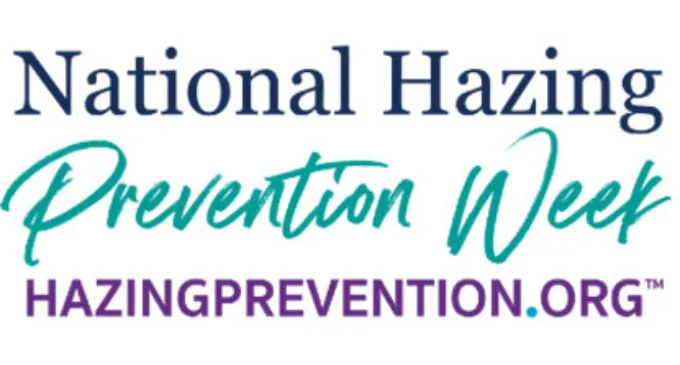National Hazing Prevention Week (September 20-24), sponsored by HazingPrevention.Org, is a time to reflect on how we create and maintain spaces that are safe and affirming. This year we ask you to consider your role in preventing and addressing hazing in our community.
Here are some quick things that you can do, that can have a big impact.
1. Review Kappa Alpha Theta policy and expectations.
Kappa Alpha Theta does not tolerate any acts that may be constituted as hazing. Hazing is defined as the subjection of a member or new member to any activity which endangers or reasonably may be expected to endanger the emotional and/or physical health or safety of a member or new member or any activity which would be expected to humiliate, embarrass, or cause personal discomfort to a member or new member, regardless of one’s willingness to participate in such activity. (Kappa Alpha Theta Bylaws, Article 1, Section 4)
Theta’s definition of hazing includes “regardless of one’s willingness to participate in such activity.” This statement is significant because according to a 2008 national study, Hazing in View: Students at Risk, 47% of students came to college already having experienced hazing and over half of all college students report experiencing hazing in their undergraduate career. A member or new member’s willingness to engage in hazing behavior is not an excuse.
As many college students return to more in-person operations this year we know now more than ever they are looking for meaningful connections and ways to get involved. Those connections should be filled with care and concern and not endanger, humiliate, embarrass, or cause personal discomfort.
Consider reviewing Theta’s hazing definition and campus expectations in your next chapter meeting or discussing this with your advisors.
Learn more about Theta's stance on hazing.
2. Review hazing facts and prevention resources.
According to Hazing in View: Students at Risk:
- 55% of college students involved in clubs, teams and organizations experience hazing.
- 2 in 5 students say they are aware of hazing taking place on their campus.
While understanding the problem is often half the battle, national surveys and local campus data can help you contextualize what hazing looks like on your campus or in your chapter. We encourage you to take a few minutes this week and learn more about what the hazing statistics are for your college or university.
Follow at @Kappa_Alpha_Theta on Instagram for resources and information related to Theta’s awareness efforts for National Hazing Prevention Week. Also, follow the hashtag #NHPW21 across all social media to be part of the global conversation about ending hazing for good.
3. Review how to report hazing.
As leaders, we ask that you remember that we all have a role to play in addressing hazing in communities and on our campuses. If you see something that endangers the emotional and/or physical health or safety of a member or new member or any activity which could humiliate, embarrass, or cause personal discomfort to a member or new member we ask that you report it. Whether it is occurring in your chapter or in another organization on your campus, hazing poses a threat to us all.
- National Hazing Prevention Hotline: 1-888-NOT-HAZE
- Kappa Alpha Theta headquarters: 888-526-1870 or contact us
To address hazing in Kappa Alpha Theta and throughout the fraternal movement, we must address hazing everywhere we see it.
If you have questions about Theta’s risk prevention efforts, including hazing prevention, visit the Risk Prevention web page.


